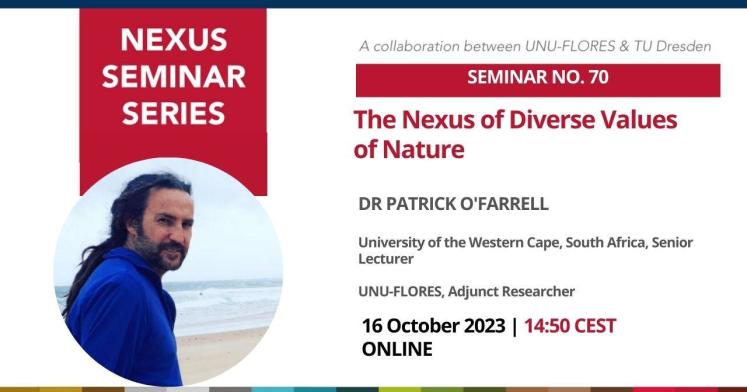People value nature in profoundly different and diverse ways that extend beyond traditional economic metrics. As a result, this diversity of value is not reflected in key political and economic decisions. The IPBES Values assessment and associated publications show how narrow valuation is foundational to the current environmental crisis. Market-based values of nature, such as those associated with intensively- produced food and commodities, are often favoured at the expense of the non-market values associated with nature’s many, such as adapting to climate change or nourishing cultural identities, that are equally essential for achieving just and sustainable societies. Even biodiversity conservation policies, such as expanding protected area networks, can prioritise narrow sets of values regarding nature, frequently marginalising those values held by Indigenous peoples and local communities. In responding to the current crisis, we have proposed four ‘values-centred approaches’ that show promise in creating the conditions for driving transformative change towards more just and sustainable futures: recognising the diversity of values with regard to nature, embedding these diverse values in decision-making, reforming policies and stimulating institutional change, and shifting society-level norms and goals to support sustainability-aligned values across sectors.
About the Speaker:
Dr Patrick O’Farrell is an adjunct researcher with UNU FLORES, and a Senior lecturer at the University of the Western Cape, South Africa. For the last 22 years, he has worked as a landscape ecologist focussed on understanding social-ecological systems within a development and conservation context. He is interested in understanding the multifunctional nature of landscapes and ecosystems and how we can develop nature-based solutions in adapting to climate change and other developmental challenges.
Background of the Series:
UNU-FLORES in collaboration with PRISMA – Centre for Sustainability Assessment and Policy on behalf of TU Dresden are excited to announce the Nexus Seminar Series. The joint seminar series, which launched in 2015, features lectures by senior scholars and successful practitioners that highlight all dimensions of research on the Nexus Approach, ranging from hands-on implementation strategies to theoretical debates. The Nexus Seminars serve not only as a platform for scientific exchange and cooperation between UNU-FLORES and TU Dresden but also a medium for the partner institutions to discuss their research with a broader audience. The Nexus Seminar, which takes place monthly during the academic semester, is open to the public and delivered in a digital format through online webinars.
Dr Patrick O’Farrell is an adjunct researcher with UNU FLORES, and a Senior lecturer at the University of the Western Cape, South Africa. For the last 22 years, he has worked as a landscape ecologist.




